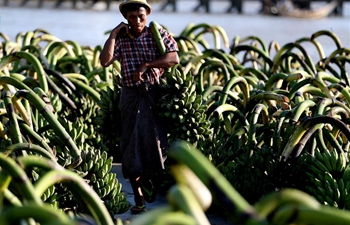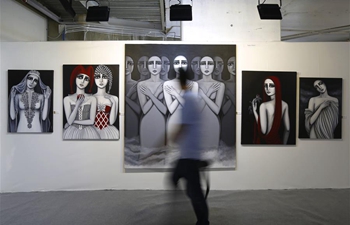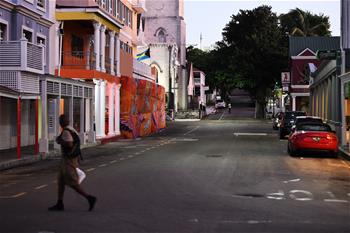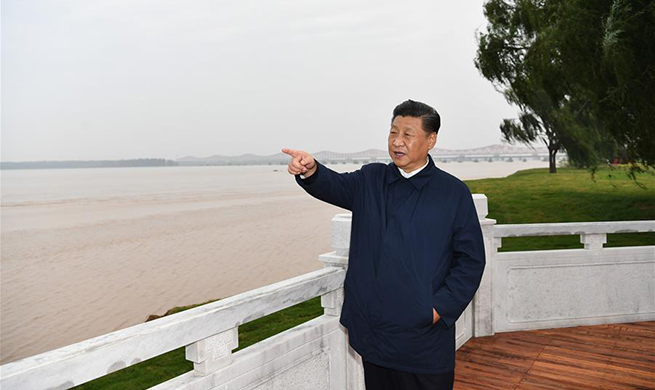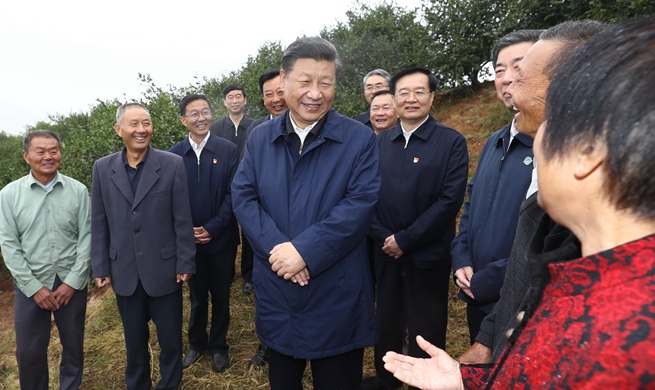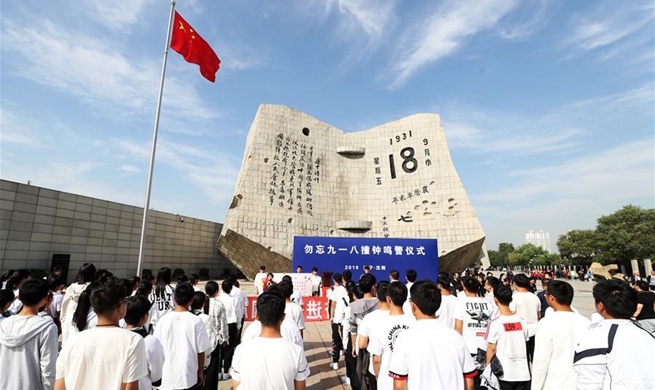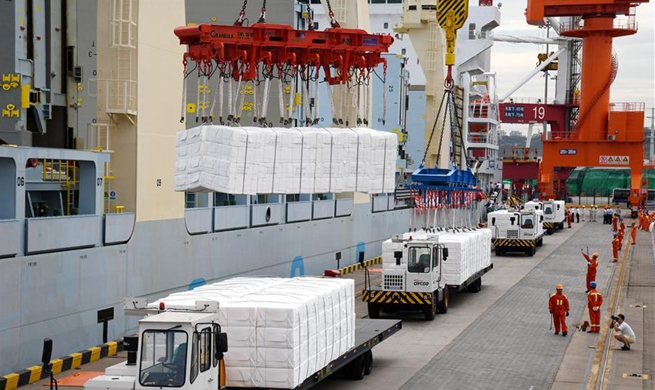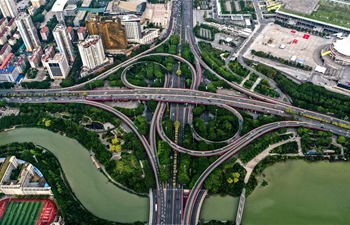SHIJIAZHUANG/JINAN, Sept. 18 (Xinhua) -- After dinnertime, the square of a small county in north China's Hebei Province transforms into a ballroom.
As loudspeakers pump out pop songs, Xiao Shengli and other villagers in Nanhe County in the city of Xingtai stand together and move their feet to the rhythms of the music.
Like most farmers in China, Xiao used to be occupied by the autumn harvest, but this year, he can immerse himself into various kinds of entertainment just like his urban counterparts.
"The happiest thing for me is to participate in square dancing, learn agricultural knowledge and master agricultural technologies during my spare time," he said.
When the People's Republic of China was founded 70 years ago, Chinese people could hardly fill their bellies after decades of warfare and chaos. Over the years, the country's economy has enjoyed robust growth and Chinese people's livelihood has remarkably improved.
Even in the countryside, increasingly affluent residents started attaching greater importance to their spiritual world.
The per capita expenditure on education and cultural entertainment in China's rural areas reached 1,302 yuan (about 184 U.S. dollars) in 2018, up over 100 percent from the figure in 1985.
In recent years, Xingtai has been stepping up its efforts to develop cultural activities in rural areas, such as forming square-dancing teams, setting up opera troupes made up of villagers, and establishing a reading center.
Last year, a total of 2,616 free films were screened in Nanhe County, attracting over 250,000 rural moviegoers, accounting for 62.5 percent of the county's total population.
According to Chen Erchao, who is in charge of movie broadcasting, there are altogether 10 film broadcasting teams in the county, whose responsibility is to broadcast the movies for audiences from 218 villages.
Hebei is not alone in enriching rural residents' spiritual world. Jinan, capital of east China's Shandong Province, is promoting a project named "bringing operas to the countryside."
Nine opera troupes made up of local farmers in Zhangqiu District have been set up, which will bring their performance to 450 villages in the district.
"Although villagers need to toil on farmland or do odd jobs, they care more about the quality of life. Traditional operas are very popular among them," said Lu Tongliang, the leader of an opera troupe in Dongzhang Village.
Equipped with an LED display screen, free Wi-Fi, lights and acoustics, a digital cultural plaza was built in Ximao Village in the city of Dongying, Shandong Province. Villagers come here to practice Taichi, play chess and dance at night.
So far, Dongying has built 363 such digital cultural plazas and plans to add 50 more this year.
"For us, producing agricultural products is a necessity of life, while cultural activities provide opportunities to improve our quality of life and enjoy ourselves," Xiao said.




